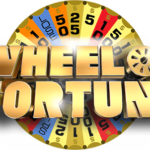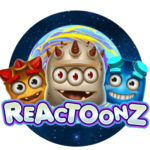 The focus of the Hot Chip site is almost exclusively casino related. It’s a topic those who visit the site are of course especially interested in (unless they took a wrong turn). From an active interest in the thrills of bricks and mortar casinos, to online versions of favourites casino games such as roulette, poker and slots, the action never ends. We all enjoy the excitement and the thought of winning some easy money, or in the case of games like poker using our skill and calm to bring in some welcome cash. In my experience though those interested in probability and chance can often extend their interest to sports betting and the opportunities that too can bring.
The focus of the Hot Chip site is almost exclusively casino related. It’s a topic those who visit the site are of course especially interested in (unless they took a wrong turn). From an active interest in the thrills of bricks and mortar casinos, to online versions of favourites casino games such as roulette, poker and slots, the action never ends. We all enjoy the excitement and the thought of winning some easy money, or in the case of games like poker using our skill and calm to bring in some welcome cash. In my experience though those interested in probability and chance can often extend their interest to sports betting and the opportunities that too can bring.
While I’m keen on horse racing and the like my main sport of choice (in terms of enjoyment via watching, as well as betting) just has to the football. There are so many leagues, tournaments and games – so consequently betting opportunities too – that night or day it’s always possible to ‘have a flutter’. And even within individual games there are betting options galore such as half time – full time results, overs/under, number of corners, red cards, player to score, the list goes on. There are so many ways in football to end up landing a winning bet that if you have a good grounding in the sport you’ll often come out on top.
Aside from betting on specific events within a game to take place, it’s of course also possible to go for the good ‘ol traditional win bet. I’ve placed many a bet on Premier League games over the years for instance, from bets on ‘dead certs’ like top teams like Manchester City to ‘also rans’ like Sheffield United (currently at the bottom of the Premier League table). Of course when betting on odds on favourites the return frequently isn’t great, and so more often than not I instead opt for an accumulator bet (aka multiple bet, or acca). This allows me to centre in on the three or four results I want to come in and if they do I benefit from greatly improved odds. It’s fun to have a bit of money riding on multiple events too as it creates interest beyond a single 90 minute game.
So if you’re looking for a break or ‘time out’ from the spin of a roulette wheel or the dealing of cards, there’s certainly something to be said for turning your eye towards sports betting and giving a footy bet consideration. You never know what riches it might bring. It’s good to mix things up, and if you take to it and come out on top you’ll be thanking me for suggesting it!
You can’t deny that themes are essential to the success of the gambling industry. Throughout the years, they have appealed to customers to the point where players now have their favourites based on the title they are playing.
Themes are here to stay – empirical research on Springer Link highlights this beyond doubt – yet it’s easy to take them for granted. Users might assume that bright lights and cool sound effects are the reasons why they are so popular within the gambling sector, but this isn’t the case. To find out more about the role themes play within the gambling industry, please keep on reading.

Source: Pexels
Brand & Production Variation
The casino sector, particularly the online casino market, is very competitive. In essence, the market is saturated, and providers must think of smart ways to carve out a niche and attract new customers regularly. This is because Investopedia points out that the phenomenon is a point when a market no longer provides demand.
Themes, therefore, give brands the power to raise awareness of their offerings because they add features to ensure formats aren’t the same. Several new casinos have implemented this strategy when hitting the market, but none more so than Fruit Kings as it uses an environmental theme throughout its website. Whether players like slot machines or table games, they get to answer the call of the wild by unearthing jewels and treasures on their journey to become the Fruit King.
Audience Engagement
Another way that themes engage audiences is by making games more relatable. A product that is fun is one thing, but one that’s exciting and reminiscent of popular culture adds another dimension to the playing experience.
This is best seen through the lens of Hollywood’s camera, with the likes of The Gladiator and Jumanji inspiring a plethora of releases that make the theme popular to this day. However, themes are flexible, which means casinos can adapt to the times to ensure their products and services are timeless. A current example is the role of Netflix’s blockbuster, Tiger King.
64 million households watched the TV series according to Variety, so it’s no surprise to see the rise of jungle titles. For instance, The Savannah King and Cats are among the most in-demand slots available on any platform.
A Bridge between Gambling & Gaming

ce: Pexels
Gambling and gaming are markets that are intertwined. The biggest link is the introduction of in-play purchases within console titles, many of which are used within a gambling format. For example, Grand Theft Auto Online has a casino where players can place wagers, which is why WEPC reports that the market is worth around £120 billion.
There is a clear relationship that casinos want to build on as it allows them to appeal to a wider fan base. A theme acts as a bridge between the two formats because NCBI highlights how themes in popular video games have been around since the 80s. As a result, a theme is a perfect foil.
Themes set video games apart. In an era where the market has never been as competitive, and where popular culture trends merge into a single entity, this is crucial for casinos with massive gaming libraries.

A slot machine is a gambling game that has spinning reels. They have different names: puggy, fruit machine, pokies, fruit machine, one-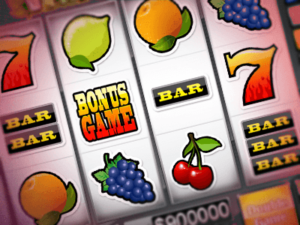 armed bandit, and many others. Depending on the poky, the number of reels could be 3 or 5. Either way, these reels usually have symbols that land at random after you bet and start a spin session. To win in this game, one must have the same characters appearing on the reels. To achieve this randomness and so the games can be fair to both players and casino owners, game developers design modern poker machines with RNGs.
armed bandit, and many others. Depending on the poky, the number of reels could be 3 or 5. Either way, these reels usually have symbols that land at random after you bet and start a spin session. To win in this game, one must have the same characters appearing on the reels. To achieve this randomness and so the games can be fair to both players and casino owners, game developers design modern poker machines with RNGs.
With the invention of the online slot machine, punters had the opportunity of trying out their games for free. Online slots have two gameplay modes: free play mode and the real money mode. Like the name, when you are playing the free play mode, the game allows you to enjoy your sessions without placing bets. Since you are not playing for fun, you will not win any real cash.
Online Slots Basic Characteristics:
-
RNG (Random Number Generator). This is a comp-based microchip that is capable of generating millions of numbers within a second. As the engine that powers the generation of numbers that determine winning combinations, the process of producing these numbers continues even when no one is engaging the machine. When a player presses the play button, this microchip makes numbers that are eventually decoded through complex algorithms to show winning combinations.
-
Paylines. These are lines along which winning symbols appear. They form part of the slot structure or layout.
-
Number of Reels (3-5-6-7). Like paylines, they vary across games. Symbols appear on reels to give winning patterns with regards to paytable specifications.
-
Winning combination. This is a pattern that has the potential to give a payout when appearing on active paylines.
-
Symbols. These are special characters that line up on adjacent reels or across paylines to give a winning formation.
-
Bonus feature. This is a special round activated once you line some symbols in a specific formation as outlined in the paytable. When they form part of the winning combination, they widen your chances of winning or landing a special round through which you can play extra games with the possibility to win more money.
-
Odds of winning. These are calculable approaches that determine a player’s chances of winning. Some slots have higher odds, while others have lower odds. The slot’s odds of winning are relatable to the in-game variance/volatility feature.
-
Payouts. These are the amounts you stand to win should you hit a winning combination while playing for real money.
Types of slots
Although slots refer to a single category of casino games, the term has a wide range of sub-categories based on the specific structure and in-play features. 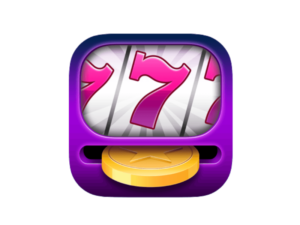
-
Classic Slots. These are mostly old-fashioned slot machines with a simple layout of 3 reels and only a single payline.
-
Video Slots. These games have outstanding graphics, animations, and other eye-popping visuals to make the game more exciting.
-
Fruit Machines. They come with a relatively simple structure, while most of the symbols are represented by fruits like Cherries, Berries, and a range of bar symbols.
-
Pokies. This is an Australian specific name that refers to slot games.
-
3D Slots. These are games that are served with fine graphics and well-choreographed animations, and sound compliments meant to tuck you deep into the game as you relish other in-game features.
-
Progressives. Some slot games come with a progressive jackpot feature. A progressive jackpot gets bigger after every stake on the game as a small percentage is channeled to the prize pool. This pool grows bigger until the lucky winner gets the right combination. With free progressive slots no download you can win a big jackpot, to practice choose games like Mega Moolah and check they work.
-
Multi-payline slots. Most modern slot games are multi-payline games implying that they have more than 1 payline. They could be 5, 10, 20, 25, or even 50.
-
Multipliers. Some slot games have multiplier features that increase their winnings. Activated by the appearance of specific symbols, multipliers are specific across games.
Free Slot Machines
Free slots no download is demo mode games that you can play with no registration before switching to the real money version with unlocked bonus features. Play for free with no deposit, no registration required. All you need to do is have a good internet connection, search for your favorite demo game and start playing for free courtesy of the virtual coins extended to you. The main benefits of free slots:
-
Instant play. Access free slots no download no registration instant play feature through HTML5 embedded in Mozilla, Chrome, and Safari browsers.
-
For fun. The opportunity to spin a game without worrying about the possible money loss gives the latitude maximum fun across multiple themes.
-
No Download No Registration. Free slots do not require downloading. They are accessible directly from the online casino servers courtesy of the inbuilt html5. No registration with the casino is necessary as you do need a platform for processing money deposits and withdrawals.
-
Free spins and bonus rounds. Through free slots no download, you stand a chance of not only enjoying free spins and bonus rounds but also studying how they come about. You have an opportunity to analyze situations and scenarios which lead to the activation of such bonus features.
-
Mobile. Free slots are instantly playable on mobile devices. Enjoy them while on the go through an iPad, iPhone, Android, and Microsoft Windows devices.
Best free online slots no download
It will help differentiate between in-game free spins/bonus round and no deposit free spin bonuses. Free spins or bonus rounds are activated through in-game moves; landing a minimum of 3 scatters symbols anywhere on reels activates a free spins round in most slot games. In the latter, free spins are awarded by specific online casinos upon registration. E.g., Bit Starz casino awards 20 free spins with no deposit after signing up.
These are some of the top games offering generous free spins:
|
Slot |
Logo |
Description |
|
Wheel of Fortune |
|
Free slots Wheel of Fortune no download no registration by IGT is a cool game with great in-game free spins and bonus rounds. It has 5 reels and 30 paylines. All symbols are theme-related, with the game’s logo as the wild that can garner you up to 2500×. Free spins are triggered once you land 3 Yellow scatter symbols on reels 1, 3, and 5. This starts a level-up free spins round where the first level gets 3 free spins and another special wild on reels. |
|
Buffalo |
|
Free Buffalo slots no download is playable on mobile devices and comes with 5 reels and 40 paylines. This game’s free spins bonus is activated when you land at least 3 gold scatter symbols anywhere on reels. As such, 3, 4, and 5 scatter symbols will simultaneously get you 8, 15, and 20 free spins. |
|
Wolf Run |
|
Free Wolf Run slots no download is playable across mobile devices owing to mobile-optimized features that allow playability while on the go. It has 5 reels and 40 paylines while enhanced by an autoplay key, in-game bonuses, and an RTP of 94.98%. Free spins round is its major bonus round activated by 3 bonus symbols on reels 2, 3, and 4. This round comes with an initial reward of 5 free spins and a 2× multiplier. This round can further be re-triggered to get you up to 255 free spins. |
|
Reactoonz |
|
This is a free video slots no download game by Play n’ Go. It plays out on a grid of 7×7 with a uniquely designed cascading reels feature with an alien theme. Every spin allows you to charge up and subsequently trigger 5 quantum features that transform the wild. With an RTP of 96.51%, this game has a high variance and a few rounds of in-game bonuses. The Quantum feature is randomly activated to yield Implosion, Alteration, Demotion, and Incision features. With the Incision feature, the wild is cut at the center to create 2 diagonal lines across the grid, thereby displaying a randomly chosen symbol. |
|
Lightning Link |
|
A unique free slot game from Aristocrat offers you a structure of 5 reels and 25/50 bet lines. It is prevalent because of its big jackpot prizes, where you can activate minor, mini, major, and grand jackpots. Its free spins round is activated when you get 3 Magical Pearl to scatter symbols anywhere on reels. |
Real Money Slot Machines
Real Money slot machines are games in which players deposit money to their respective casino account before hitting the play button. While free slots are advantageous, somehow, real money games have numerous benefits, as captured below.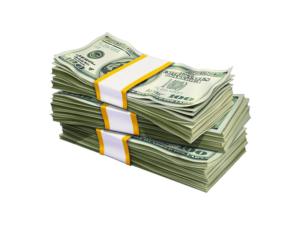
-
A Variety of Games. Developers like IGT, Aristocrat, and NetEnt, usually roll out real money games regularly to ensure their clients enjoy the latest developments. Several online casinos are available to offer limitless choices irrespective of your preference.
-
You Can Play Anytime, Anywhere. Real money slots can be timelessly enjoyed. The convenience brought about by mobile-based casinos ensures that you timelessly play your favorite games while on the move.
-
Attractive Bonus Schemes. Real money bonuses are 2-fold. You can benefit from generous in-game bonuses as triggered by wild, scatters, or other special bonus symbols. Take advantage of online casinos’ diverse real money bonuses like the Royal Panda welcoming offer, which awards a 100% cash match bonus.
-
Better Chance of Winning. Real money games afford players chances of winning real money given the real cash put into the stake. E.g., Big Red by Aristocrat has an average RTP of 97.04%; hence house edge is 2.96%.
-
Different Payment Options. Real money slot players have access to various payment options: from Visa and MasterCard credit cards to e-wallets like PayPal, Skrill, Poli.
The Biggest Slot Providers
Experienced and resourceful developers design high-quality games that meet modern-day gaming demands. Here are some of the developers that have a desirable profile for producing quality and top-rated games.
|
Company |
Logo |
Description |
|
IGT |
|
Known for its free IGT slots no download no registration, and real money games. The company has hundreds of slot machines in Canada, UK, New Zealand, the USA, and Australia. It has a budget of at least $300 million with continued investments in gaming for wearable devices. Some of its popular games are Davinci Diamonds, Double Diamonds, and Lobstermania. |
|
Aristocrat |
|
A trendy manufacturer of online slot and general casino software. You can play aristocrat slots online free no download as they are available in real money and free demo mode. Based in Australia, it is known for products like Buffalo Gold Revolution, which won Top Performing New Video Reel Core. |
|
Playtech |
|
Based in Sweden, this is a regulated slot machines developer licensed by the Malta gaming authority. It has a collection of real money games and Playtech free slots such as Sunny Scoops, which is fully mobile-optimized. |
|
WMS |
|
Widely known as William’s Interactive, WMS has a profile replete with highly competitive slot games. Examples of free WMS slots no download are Men in Black and the Lord of Rings. |
|
Bally |
|
It has a rich history dating back to the 1930s. It has grown into an award-winning company, having bagged at least 4 awards in the 2014 edition of Floor Technology Awards. Some of the renowned free Bally slots no download games include; Monopoly Hot Shot and Twin Fire Frenzy. |
|
Novomatic |
|
It was established in the 1980s and currently takes pride in at least 255,000 gaming terminals worldwide. Some of the free Novomatic slots online that you can try on your mobile devices are Treasure Jewels Deluxe and Dragon Hits. |
|
Microgaming |
|
A highly respected manufacturer of online slot machines has made a name out of epic casino games like the Mega Moolah progressive game. With vast investments in rolling out technologically advanced games, some of the Microgaming slots free play that you can try are King Arthur, Big Kahuna, and House of Dragons, to mention just a few. |
How to Play Slots Online
If you are planning to start playing online slots, here is a guide:
-
Look out for legit casinos like MelBet, iLuck, or Royal Panda and sign up.
-
Log into your casino using personal credentials
-
Ensure your account is loaded by transferring cash through any of the deposit methods accepted by the online cashier
-
Choose the game you would like to play
-
Adjust the bet range and select the number of bet lines you wish to play
-
Hit the autoplay and keep an eye on winning formations as per the paytable
-
In case of a gamble feature, you may want to double or quadruple your winnings accordingly
Best Online Slots Strategies
Although slot machines are mainly chance games, you may leverage these instructions and win big:
-
Study the game’s volatility or variance before spinning for real money. This helps estimate the probability of winning during a particular round. Games with low volatilities have small but frequent winnings. High-volatile games come with low chances of winning frequently, but winnings are fairly large when they appear.
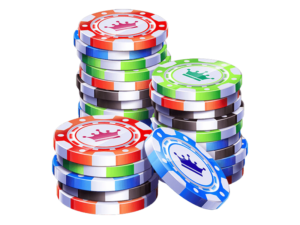
-
Ensure to choose games with Higher RTP averages. Games like Mega Joker by NetEnt (RTP 99%) and Blood Suckers with an RTP of 98% are preferable.
-
When your eyes are set to winning a more considerable amount, ensure to play with the max bet option since this is the only way to access jackpot prizes in many slot games.
-
When playing for real money games, choose casinos with higher payout percentages. E.g., 888 casino has a percentage payout of 96.26%.
-
Ensure to try free demo mode games before playing real money games.
Winning while playing free slots, no download is the best feeling a gamer experience. Here are some ways to enhance your winning chances.
-
Ensure to approach your gaming session with a budget. Do not be tempted to play for long in the hope of getting back the money lost in the initial spins.
-
Look out for casinos with legit licenses. There are illegal sites that may bait you with nice-looking bonuses only to get away with your cash.
-
Research to find out the in-game bonus features before playing the game. Does the game have a generous wild or scatter feature? Is there any special bonus symbol with a super payout?
-
Look out for casinos offering the best welcoming packages. This will significantly improve your bankrolls hence improving your winnings when you hit a winning formation.
Slot machines, whether for real money or otherwise, are a great way to have fun. With so many variations and experienced developers designing befitting games, a player should keep trying new variants to enjoy the latest technologies while standing a chance to win big.
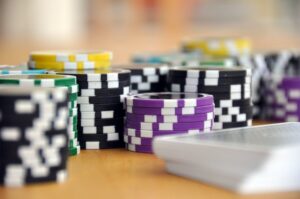 Once described by the High Court of Australia as the ‘highest of high rollers’, Harry Kavakas was, in his heyday, an eminently successful property salesman. He accrued a multi-million fortune selling houses on the Gold Coast in Queensland, in northeastern Australia, but frittered away everthing he had, and more, at the Crown Casino in Melbourne. In a 14-month spell between June 2005 and August 2006, Kakavas staked an eye-watering A$1.5 billion on baccarat, betting up to A$300,000 a hand, and lost A$30 million, including $A2.3 million in less than half an hour on once occasion.
Once described by the High Court of Australia as the ‘highest of high rollers’, Harry Kavakas was, in his heyday, an eminently successful property salesman. He accrued a multi-million fortune selling houses on the Gold Coast in Queensland, in northeastern Australia, but frittered away everthing he had, and more, at the Crown Casino in Melbourne. In a 14-month spell between June 2005 and August 2006, Kakavas staked an eye-watering A$1.5 billion on baccarat, betting up to A$300,000 a hand, and lost A$30 million, including $A2.3 million in less than half an hour on once occasion.
Kavakas later made legal history when, in 2007, he sued Crown Casino for ‘unconscionable conduct’. Kavakas’ laywers argued that Crown Casino has exploited his ‘pathological urge to gamble’ by providing him with complimentary accommodation, food and drink and travel, plus so-called ‘lucky money’, at up to A$50,000 a time, to a total value of nearly A$10 million. Crown Casino, on the other hand, argued that Kavakas presented himself not as a problem gambler – which, by his own admission, he was – but rather as an affluent businessman, who could afford to gamble the astronomical sums involved.
Kavakas’ claim for A$20.5 million in damages for his net losses, heard in the Supreme Court of Victoria, was dismissed on the grounds that Crown Casino was legimately competing for his business and Kavakas had, in fact, demonstrated that he found it possible to refrain from gambling. Kavakas subsequently appealed to the Court of Appeal in Victoria and, finally, to the High Court of Australia but, in both cases, his appeal was unanimously dismissed.

